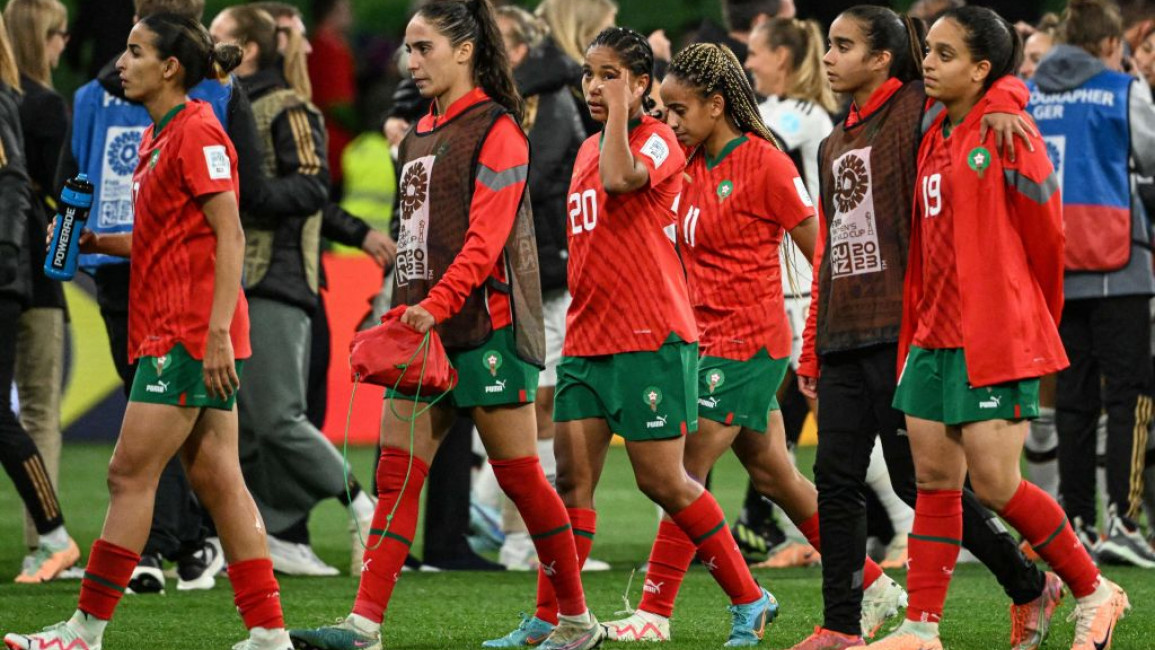'Who is gay in the team?': Reporter's question on Moroccan Women team's sexualities slammed as 'unethical' and 'orientalist'
As the Moroccan women's football team faced the media ahead of their historic World Cup debut, one BBC reporter asked whether there were homosexual players in the Moroccan squad. The question was promptly decried by fans and fellow journalists as "orientalist" and "unethical".
"We know that gay marriage is illegal (in Morocco). Are there any gay players in the team? And what is it like for them?" a reporter asked the team's captain Ghizlane Chebbak on Sunday.
According to media reports, the reporter, who didn't represent themselves before asking the question, works for the BBC World Service.
A FIFA moderator shut down the question, reminding the journalist that they were not there to discuss politics.
At the press conference, Chebbak and Moroccan media were audibly dismayed at the question.
Over social media, journalists and fans slammed the reporter for their "harmful," "white saviour", and "sexist" question to the North African team.
"White people's saviour complex is always troubling to me. Why put her in a position where she will risk her career and out herself or her teammates and then face the consequences while the journalist gets to move on in peace," wrote a Moroccan fan on Twitter.
Another fan argued that the question "reflects the old sexist view that all or most female footballers are lesbian, just because the sport was seen as typically male."
It also reflects the old machist and sexist view that all or most female footballers are lesbian, just because the sport was seen as typically male. I heard it in Sweden in the 90s but would have thought the @BBCWorld to be the last place to peddle that kind of nonsense.
— Anckarström, Esq. 🇸🇪🇲🇦🇵🇸 (@ibnkafka) July 23, 2023
Meanwhile, Tasmanian journalist Molly Appleton said the question demonstrated "why you need diversity in journalism". "This is your answer. So unethical, harmful questions like this aren't asked," she tweeted.
Women's football has historically acted as a haven for LGBTQ+ communities and openly embraced queer players, unlike male football, which continues to be a hostile field for LGBTQ+ fans, managers and players, according to a survey by Gay Times.
However, homosexuality remains illegal in Morocco, punishable by up to three to five years imprisonment and a fine of 1,200 dirhams ($120).
American sports journalist Steph Yang said the question was "inappropriate" and would have "endangered" the players themselves.
"We are obviously going to talk about the intersection of politics and sports at this World Cup, and it's vital to do so. But we should take care that our questions don't cause further harm to those impacted by those very politics," added Yang in a tweet.
Last year's World Cup, held in a Middle Eastern country with several human rights issues, including criminalising homosexuality, fueled debates across borderlines on significant political, activism and football matters.
We are obviously going to talk about the intersection of politics and sports at this World Cup, and it's vital to do so. But we should take care that our questions don't cause further harm to those impacted by those very politics.
— Steph Yang | Horrible Soccer Goose (@thrace) July 23, 2023
The Atlas Lionesses represent the Middle East and North Africa (MENA) region in the FIFA Women's World Cup (WWC).
They qualified for the tournament after scoring a victory against Botswana in the Women's Africa Cup of Nations (WAFCON) quarter-finals.
Last year, in a packed stadium in Rabat, the Atlas lioness played, for the first time, in the WAFCON finale against South Africa.
And though the team fell short in a 2-1 loss to South Africa, the Moroccan women's football displayed an outstanding performance widely celebrated around the North African Kingdom.
In the 2023 FIFA WWC, co-hosted by New Zealand and Australia, Morocco will compete with Germany, South Korea, and Colombia.



